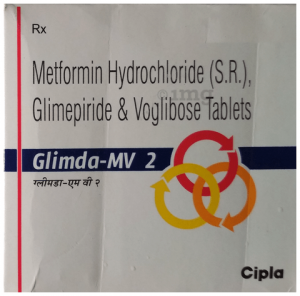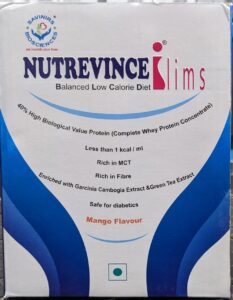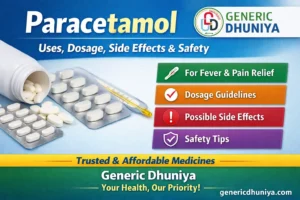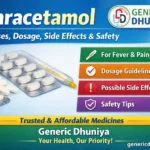Welcome to Generic Duniya, here we are discussing about Cholesterol
What is Cholesterol?
Cholesterol is a type of lipid (fat) that is naturally produced by the body and is essential for various biological functions such as the production of hormones, bile acids, and cell membranes. It is also found in certain foods, particularly animal products such as meat, eggs, and dairy.
Cholesterol is transported in the bloodstream by two types of lipoproteins: low-density lipoprotein (LDL) and high-density lipoprotein (HDL). LDL is often referred to as “bad” cholesterol because high levels of it in the blood are associated with an increased risk of heart disease, stroke, and other health problems. HDL, on the other hand, is often called “good” cholesterol because it helps to remove excess cholesterol from the bloodstream and transport it to the liver for processing and elimination.
Although some cholesterol is necessary for proper bodily function, high levels of LDL cholesterol can lead to a buildup of plaque in the arteries, which can narrow the arteries and increase the risk of cardiovascular disease. Therefore, it is important to maintain a healthy balance of cholesterol in the body through a balanced diet and exercise.
What will happen if cholesterol levels are high ?
If cholesterol levels are high, particularly LDL cholesterol, it can lead to the accumulation of plaque in the walls of arteries, a condition called atherosclerosis. Over time, the plaque buildup can narrow and harden the arteries, reducing blood flow to the heart and other organs. This can lead to a number of serious health problems, including:
- Heart disease: High cholesterol levels can increase the risk of coronary artery disease, which can cause chest pain, heart attacks, and other heart-related problems.
- Stroke: The buildup of plaque in the arteries can also lead to stroke, which occurs when the blood supply to the brain is interrupted or reduced.
- Peripheral arterial disease (PAD): High cholesterol levels can also cause atherosclerosis in the arteries that supply blood to the legs, arms, and other parts of the body. This can lead to pain, numbness, and reduced mobility.
- Pancreatitis: In rare cases, high levels of triglycerides (a type of fat in the blood) can cause inflammation of the pancreas, a condition called pancreatitis.
- Xanthomas: High cholesterol levels can cause the formation of yellowish, fatty deposits under the skin called xanthomas, which can be unsightly and uncomfortable.
- Gallstones: High cholesterol levels can also contribute to the formation of gallstones, which can cause abdominal pain and discomfort.
Therefore, it is important to maintain healthy cholesterol levels through a balanced diet, regular exercise, and other healthy lifestyle habits. In some cases, medication may also be necessary to help control cholesterol levels.
What will we do if cholesterol levels are high?
If your cholesterol levels are high, there are several steps you can take to manage them:
- Change your diet: A heart-healthy diet is important for managing high cholesterol levels. This includes eating foods that are low in saturated and trans fats, and high in fiber. Foods to include are fruits, vegetables, whole grains, lean protein, and healthy fats such as olive oil, nuts, and seeds.
- Increase physical activity: Regular exercise can help increase HDL (good) cholesterol levels and lower LDL (bad) cholesterol levels. Aim for at least 30 minutes of moderate-intensity exercise most days of the week.
- Quit smoking: Smoking can lower HDL cholesterol levels and increase the risk of heart disease.
- Lose weight: Being overweight or obese can increase LDL cholesterol levels and decrease HDL cholesterol levels. Losing weight through a healthy diet and regular exercise can help improve cholesterol levels.
- Take medication: In some cases, medication may be necessary to help manage high cholesterol levels. Statins, for example, are a type of medication that can lower LDL cholesterol levels and reduce the risk of heart disease.
It’s important to speak with your healthcare provider about the best approach to managing your high cholesterol levels, as they can provide personalized recommendations and guidance.
How to reduce cholesterol?
There are several ways to reduce cholesterol levels in the body:
- Diet: A diet that is low in saturated and trans fats and high in fiber can help reduce cholesterol levels. This includes eating more fruits, vegetables, whole grains, and lean proteins such as fish and poultry.
- Exercise: Regular exercise can help raise HDL (good) cholesterol levels and lower LDL (bad) cholesterol levels. Aim for at least 30 minutes of moderate-intensity exercise most days of the week.
- Quit smoking: Smoking damages blood vessels and can lead to the buildup of plaque in the arteries, which can increase cholesterol levels.
- Lose weight: Being overweight or obese can contribute to high cholesterol levels. Losing weight through a healthy diet and regular exercise can help lower cholesterol levels.
- Medication: In some cases, medication may be necessary to lower cholesterol levels. Your doctor can prescribe cholesterol-lowering drugs such as statins, niacin, bile acid sequestrants, or fibrates.
It’s important to speak with your doctor about the best approach to lowering your cholesterol levels, as they can recommend specific lifestyle changes and medications based on your individual needs and health status.
buy generic medicines online in https://genericdhuniya.com/


















